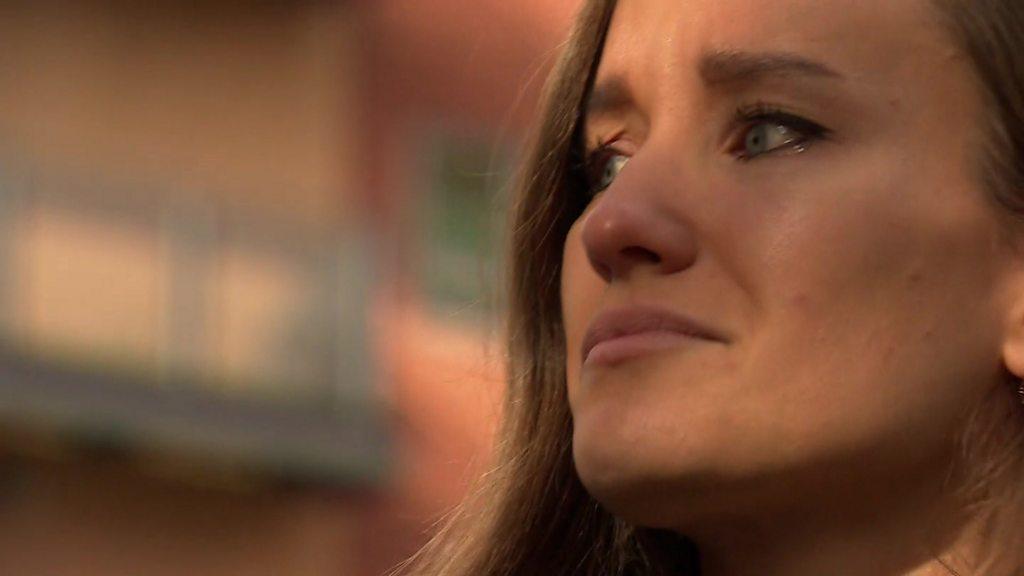Grenfell Tower: Survivor warns lives are still in danger
- Published
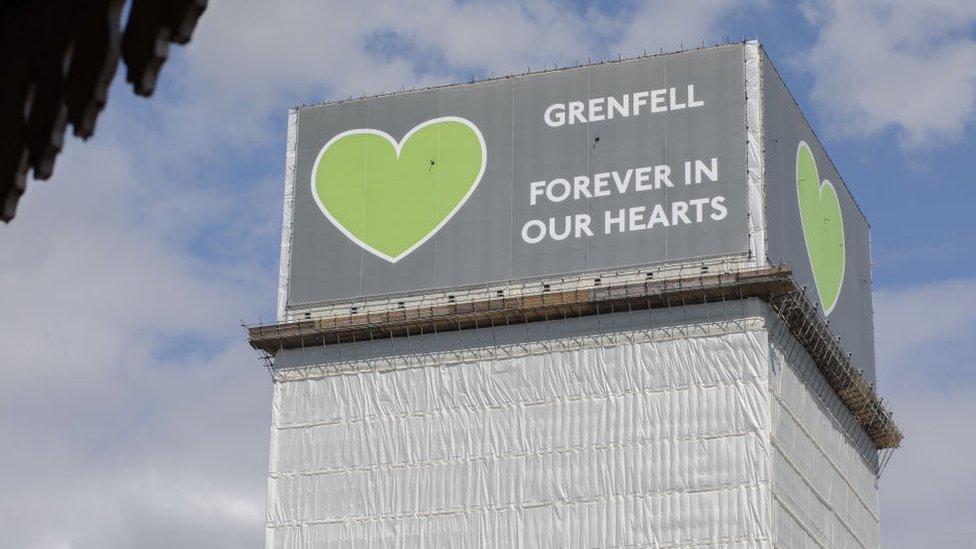
Families and survivors of the Grenfell Tower fire say they are angry the government has failed to fix thousands of other dangerous buildings four years on from the disaster.
An estimated 700,000 people are still living in buildings wrapped in flammable materials.
"We are a long way from receiving any kind of justice", says Edward Daffarn, who was rescued from the 16th floor of Grenfell Tower.
"As long as that cladding remains on the outside of buildings, Grenfell two will happen."
What started as a small kitchen fire in the early hours of 14 June 2017, engulfed the entire tower in the Royal Borough of Kensington and Chelsea, and killed 72 people.
The type of ACM cladding on the 24-storey council block has been blamed for helping to spread the flames.
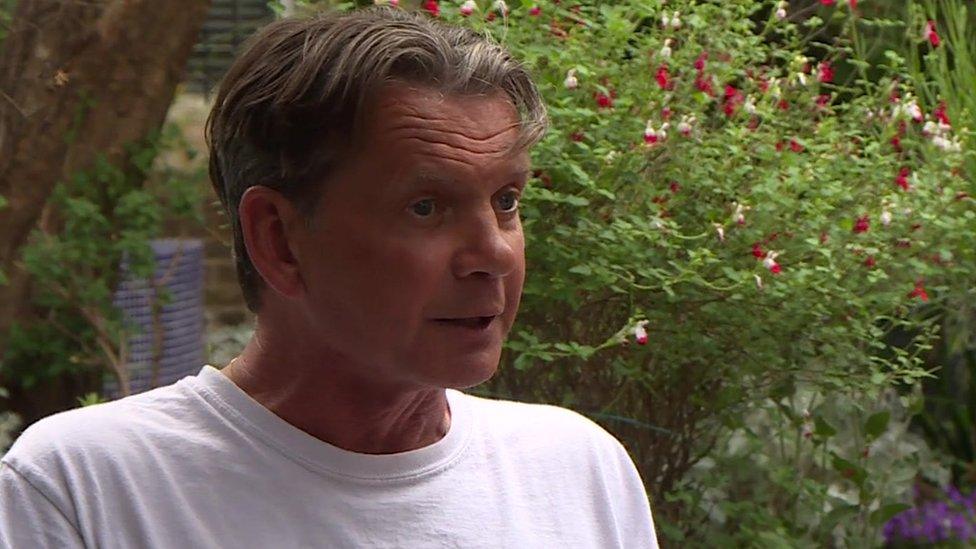
Edward Daffarn was rescued from the tower four years ago
Grenfell Tower was Mr Daffern's home for nearly 20 years and in the months before the tragedy he had warned about the fire risk in a community blog.
Today he warns not enough is being done to make other buildings safe.
"I don't think they (the government) have the concept of how serious this is, people's lives are in danger," he says.
"If it was four months after Grenfell that would be bad enough - it's four years after Grenfell and there are thousands and thousands of buildings still covered in dangerous materials."
Safety checks on thousands of other high-rise buildings in the wake of the tragedy revealed not just dangerous cladding but other fire safety faults, including defective insulation, missing fire breaks and flammable balconies.
Leaseholders across the UK now face bills of up to £100,000 each.

Mariam Chaudhary says residents are scared
Last month, there was a fire at a development in east London with the same type of cladding used at Grenfell. Ventilation systems and fire doors did not respond to sensors at the New Providence Wharf building when a blaze broke out on the eighth floor, according to a report by the London Fire Brigade.
"It's really shocking in this day and age in a first world country we have buildings like this - and people living in death traps," warns Mariam Chaudhary, one of 35 people rescued.
"It's the last thing you expect when you are buying a place," adds the accountant, who is originally from Canada.
"You expect to be safe. We are coming home and having to be super vigilant. It's so scary."
New Providence Wharf is eligible for money from the government's Building Safety Fund for the removal of dangerous cladding and since the fire, the developers have agreed to pay for the remaining work to make the building safe.
The Bishop of Kensington is also backing a campaign, led by leaseholders, for new laws to compel developers to act and not pass on costs to leaseholders.
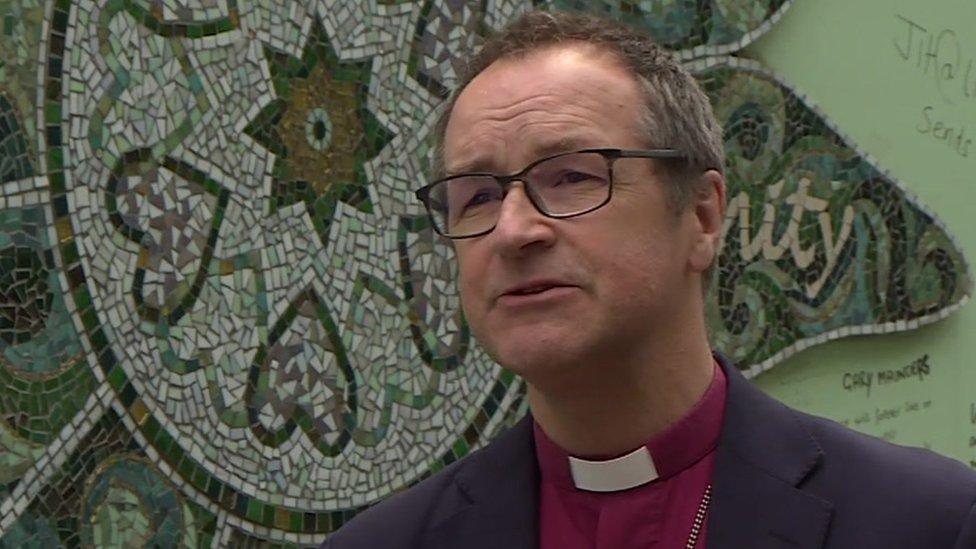
Dr Graham Tomlin is backing a campaign to compel developers to act
"We need legislation that will force the hands of developers and those responsible for putting up buildings that we now know not to be safe," Dr Graham Tomlin says.
"People in Grenfell needed to feel safe in their homes and they weren't safe, and people around the country are facing mental and financial stress as a result of the cladding scandal. We need urgent action."
Churches across London will be lit up green and toll their bells 72 times later to mark the anniversary of the tragedy.
Growing frustration
The Prime Minister tweeted his "thoughts are with the survivors, the bereaved and the wider community affected by this devastating fire".
He added: "This government is committed to ensuring this never happens again."
Housing Secretary Robert Jenrick echoed those words, saying: "The government will continue to stand with the community to honour those that lost their lives and ensure justice is delivered."
The Grenfell United campaign is warning the tragedy will be repeated if the government's efforts to fix the crisis are not better funded and faster.
Mr Daffarn says there is growing frustration that no one has been held accountable for the disaster.
He believes the tower should, for now, stand as a monument.
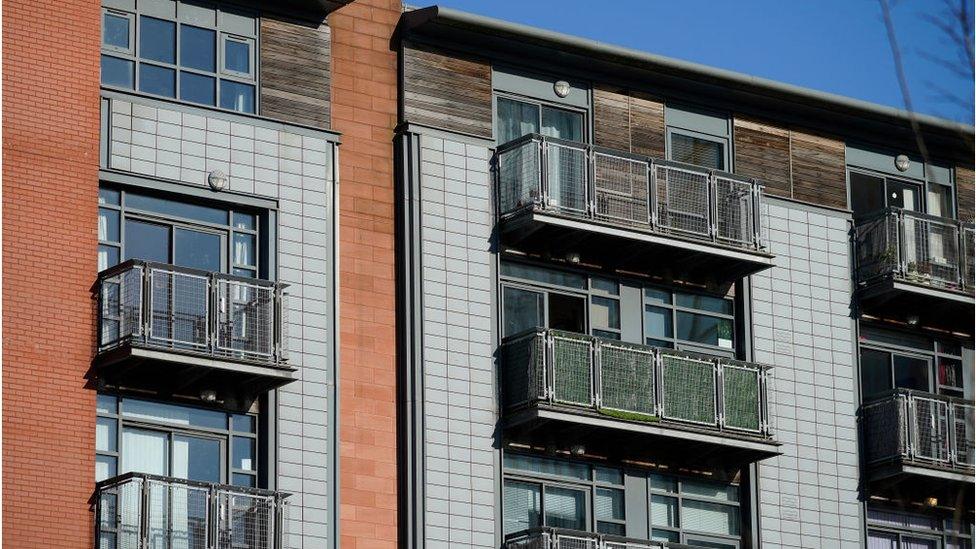
"The tower must remain there as a symbol of what happened," he adds.
"The lack of progress. If I had my own way I would rip the covering off the tower and expose it in its full horror until we get some form of justice."
The government has allocated £5.1bn to remove dangerous cladding on the highest risk blocks over 18 metres. Those in lower-rise buildings will be able to access a loan to help pay for cladding removal, with repayments capped at a maximum of £50 a month.
Ministers have repeatedly said that building owners have a responsibility to make buildings safe.
- Published23 December 2020
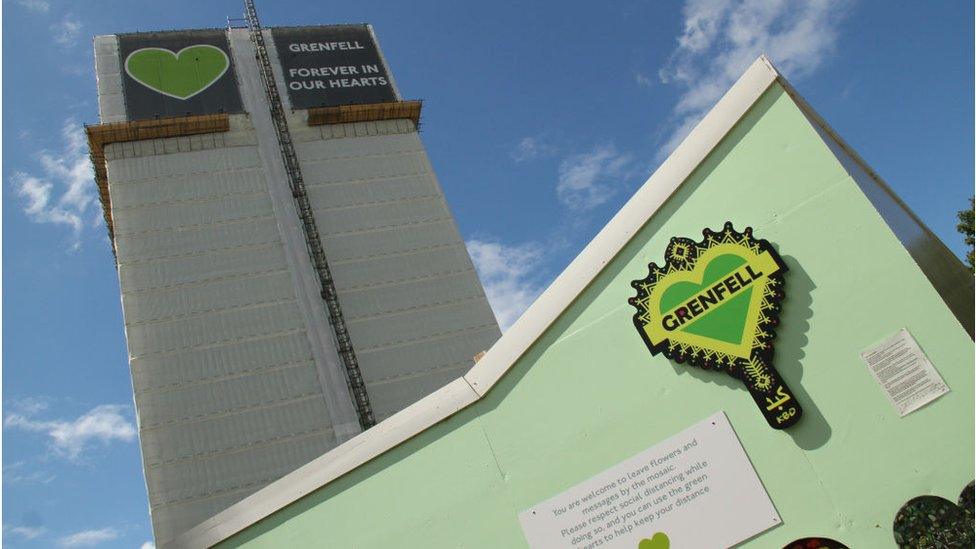
- Published2 June 2021
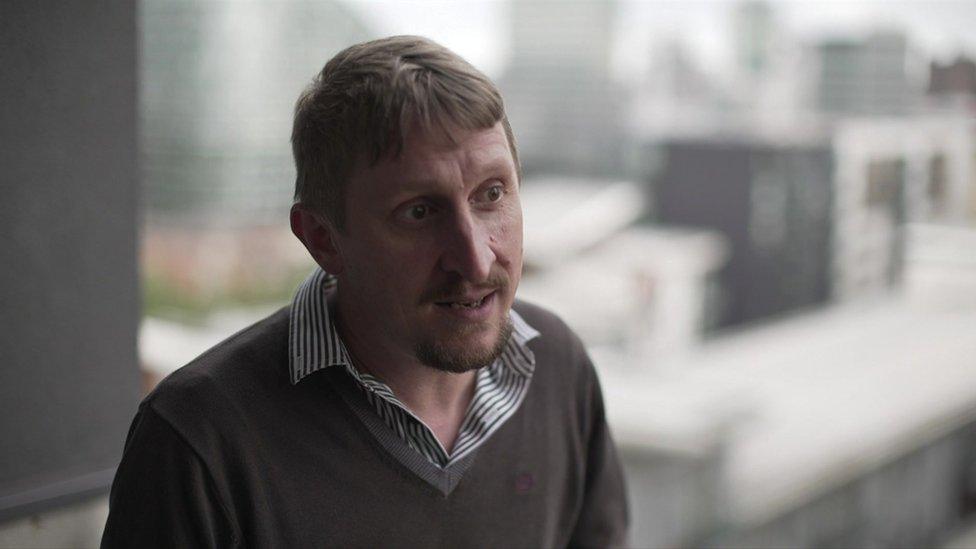
- Published21 March 2021
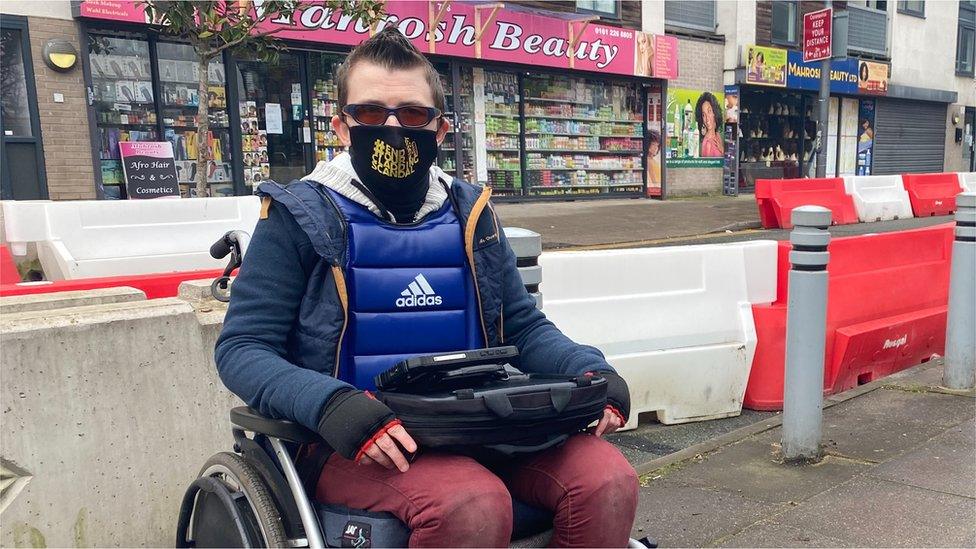
- Published20 October 2020
